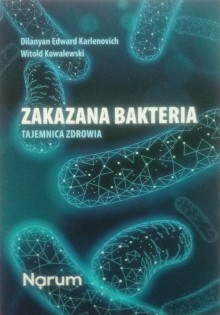
W oparciu o te badania, w opracowaniu ukazano korzystny wpływ przyjmowania "Narine" w chorobach onkologicznych w antybiotykoterapii, w chorobach ginekologicznych, w leczeniu cukrzycy insulinozależnej, alergii, przy schorzeniach immunologicznych, w leczeniu zakażeń gronkowcem, w chorobach wywołanych działaniem promieni radiacyjno-termicznych, w profilaktyce pooperacyjnej, w zapaleniu pępka u noworodków, w chorobach wątroby i trzustki, w hipercholesterolemii, w chorobie refluksowej przełyku. Ponadto badania wykazały skuteczność probiotyku "Narine" w kosmetologii oraz leczeniu paradontozy.
Opracowanie. niektórych rozdziałach napisano w mało przystępny sposób. Zwłaszcza jeśli chodzi o część poświęconą ukazaniu skuteczności probiotyku poprzedzoną badaniami klinicznymi. Nie zawsze da się przeczytać te rozdziały w całości jeśli nie jest się szczególnie zainteresowanym, którymś z rozdziałów. Sądzę, że nie każdy przebrnie przez niektóre naukowe zagadnienia. Sama, nie będąc laikiem w kwestii medycznej, opuszczałam sporą część wyjaśnień, a skupiałam się bardziej na wynikach i wnioskach, aniżeli na samym opisie grup badawczych. Co nie jest oczywiście minusem dla opracowania.
Za najbardziej interesującą uznaję tą część książki, w której omówiono co to jest ta bakteria z rodziny o nazwie Lactobacillaceae oraz ogólne informacje o samym probiotyku i jego korzystnym wpływie na organizm. Choć w niektórych fragmentach miałam nieodparte wrażenie, że to czysta reklama produktu mająca pisać w samych superlatywach. Właśnie najbardziej dało się to odczuć w części dotyczącej badań.
Opinia opublikowana na moim blogu:
https://literackiepodrozebooki.blogspot.com/2022/02/zakazana-bakteria-tajemnica-zdrowia.html

 Log in with Facebook
Log in with Facebook 









